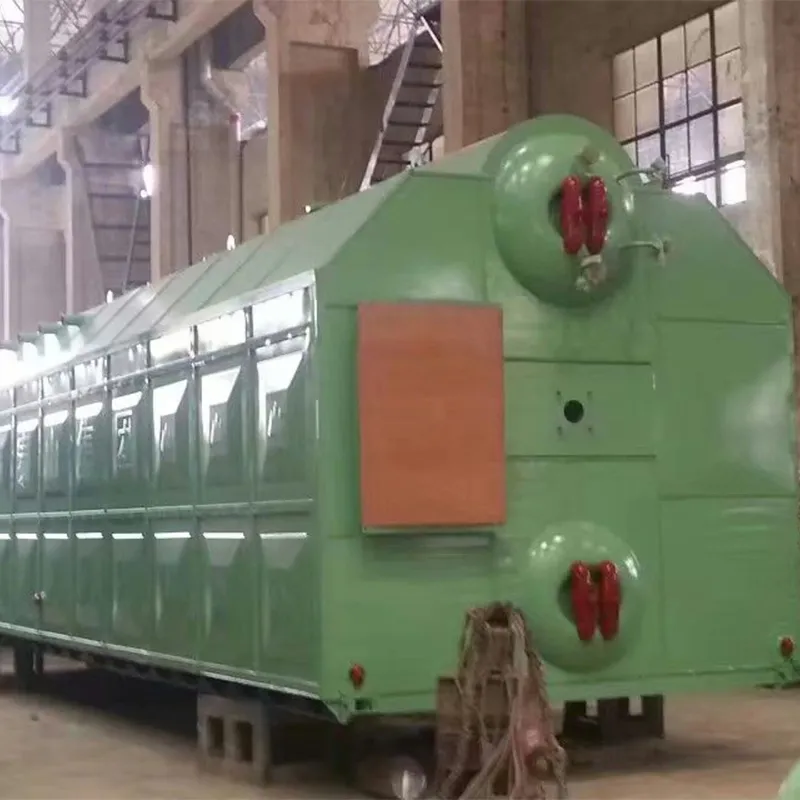coal fired steam boiler
The Role of Coal-Fired Steam Boilers in Modern Energy Production
Coal-fired steam boilers have long been a crucial component of energy production systems across the globe. Despite ongoing debates regarding their environmental impact, these systems continue to play a significant role in various industries, delivering reliable and cost-effective steam for heating and power generation. This article explores the functioning, advantages, disadvantages, and the future of coal-fired steam boilers.
Understanding Coal-Fired Steam Boilers
Coal-fired steam boilers operate by burning coal to produce steam, which is then used to drive turbines for electricity generation or to provide heat for industrial processes. The basic principle involves burning coal in a combustion chamber, where generated heat vaporizes water in a separate chamber, producing steam. This steam is subsequently channeled to turbines or heating systems, depending on its intended application.
These boilers are categorized based on their design and operational features. The most common types include subcritical, supercritical, and ultra-supercritical boilers. Each type varies in efficiency, operating pressures, and temperature ranges. Supercritical and ultra-supercritical boilers, which operate at higher pressures and temperatures, achieve greater efficiencies, thereby producing more power with less coal consumption.
Advantages of Coal-Fired Steam Boilers
One of the primary advantages of coal-fired steam boilers is their cost-effectiveness. Coal is one of the most abundant and affordable sources of energy around the world, particularly in countries like China and India, where coal reserves are plentiful. This economic aspect makes it a favorable option for many power plants, especially in developing regions where budget constraints are significant.
Additionally, coal-fired boilers are known for their reliability. They can operate continuously, providing a steady output of steam and electricity, which is essential for industries that require uninterrupted service. Moreover, with advancements in technology, modern coal-fired steam boilers have incorporated more sophisticated combustion technologies and emissions controls, helping to improve their efficiency and reduce harmful emissions.
coal fired steam boiler

Disadvantages and Environmental Impact
Despite their advantages, coal-fired steam boilers come with considerable downsides, particularly concerning environmental sustainability. The combustion of coal releases large amounts of carbon dioxide (CO2), a major greenhouse gas contributing to climate change. Furthermore, coal combustion emits sulfur dioxide (SO2) and nitrogen oxides (NOx), which can lead to acid rain and respiratory problems.
These environmental concerns have prompted a global shift toward cleaner energy sources. Many governments are implementing stricter regulations on emissions and promoting renewable energy alternatives such as wind, solar, and hydroelectric power. As a result, the future of coal-fired steam boilers is increasingly under scrutiny, and many plants are being retrofitted or replaced with more sustainable technologies.
The Future of Coal-Fired Steam Boilers
Looking ahead, coal-fired steam boilers may still have a role to play, but it will likely be in a more limited capacity. Innovations in carbon capture and storage (CCS) technology could potentially mitigate some of the environmental impacts associated with coal combustion. By capturing CO2 emissions before they enter the atmosphere, these technologies could allow for the continued use of coal while addressing climate concerns.
Furthermore, hybrid models that combine coal with biomass or other renewable energy sources are gaining traction. Such systems aim to reduce carbon footprints while utilizing existing coal infrastructure, thus providing a transitional solution as the world moves towards greener energy.
In conclusion, coal-fired steam boilers have historically been a backbone of energy production due to their reliability and affordability. However, the pressing challenges of climate change and declining coal reserves necessitate a reevaluation of their use. As society shifts towards more sustainable energy solutions, the future of coal-fired steam boilers may involve a blend of innovative technologies and renewable energy adaptations, aligning with the global commitment to reduce carbon emissions and increase environmental responsibility.
-
Industrial Steam Boiler Corporation - Reliable Industrial Boiler Manufacturer & SupplierNewsJul.08,2025
-
High-Efficiency Steam Boiler Heat Exchanger Supplier & Factory Durable Products for IndustryNewsJul.08,2025
-
Premium Electric Steam Boiler Manufacturer Reliable Company & Factory SolutionsNewsJul.08,2025
-
Commercial Hot Water Boiler - Reliable Supplier & Factory Direct Price for Efficient Heating SolutionsNewsJul.07,2025
-
Top Hot Oil Boiler Manufacturer - Reliable Thermal Oil & Coal Fired Boiler Manufacturer ManufacturerNewsJul.07,2025
-
High-Efficiency Hotel Hot Water Boiler – Leading Exporters & Quotes for HotelsNewsJul.07,2025

